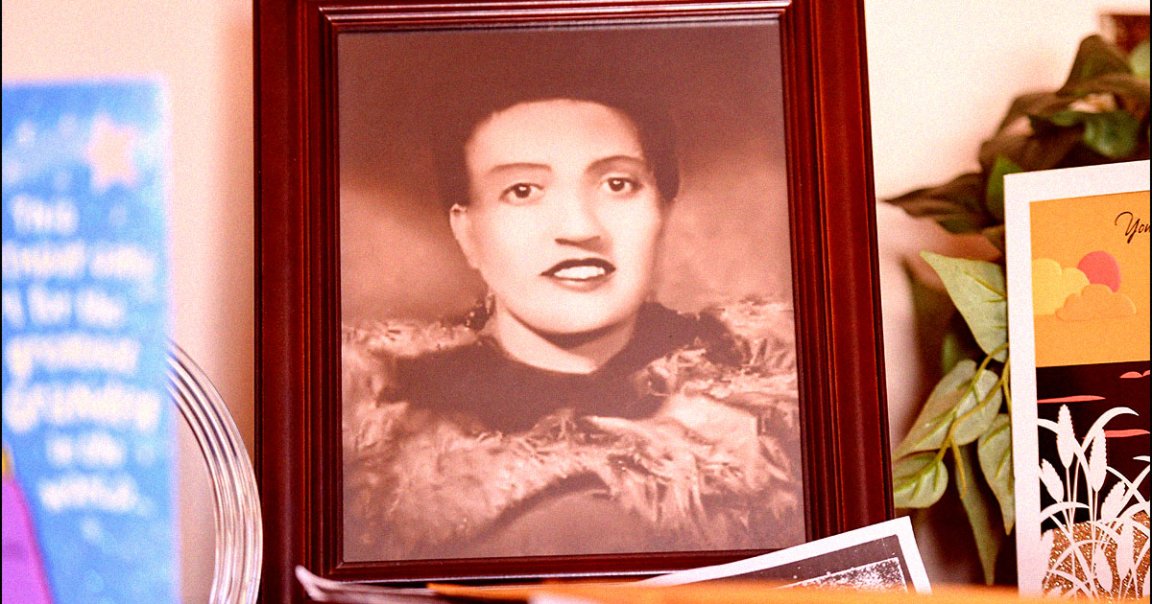
It’s a big day for genetic justice.
More than 70 years after Henrietta Lacks’ cells were first harvested without her or her family’s consent, The New York Times reports that the Lacks family and the biotech firm finally reached a settlement on Monday.
It all started back in 1951 when Lacks, a Black mother of five and resident of Baltimore, sought treatment for cervical cancer in a segregated ward of Johns Hopkins University’s hospital. The just 31-year-old Lacks would tragically die of the disease that same year, but before she passed, doctors harvested a string of Lacks’ cancer cells and passed them along to university researchers — without their patient’s express knowledge or permission.
To the researchers’ surprise, the cells were doing something pretty unusual: rather than dying off, they were continuing to multiply.
This cell line, which came to be known as “HeLa” cells, were the first cells ever witnessed to replicate outside of the human body. They also represent a critical turning point in modern medicine and have been essential to the discovery and development of various medical treatments and pharmaceuticals including polio and coronavirus vaccines, cancer treatments, IVF therapies, HIV/AIDS medicines, and more.
It wasn’t until 1973 that Lacks’ family discovered what her cells were being used for.
“These cells were taken from her body like she was a lab rat in an experiment,” Lacks’ granddaughter Kim Lack told CBS-affiliated radio station WJZ last year. “No one even reached out to the family to let them know.”
Meanwhile, a pharmaceutical company called Thermo Fisher Scientific has made extensive use of Lacks’ cells.
Finally, in 2021, Lacks’ descendants sued Thermo Fisher on grounds that the firm chose to “embrace a legacy of racial injustice embedded in the US research and medical systems” by continuing to “sell HeLa cells in spite of the cell lines’ origin and the concrete harms it inflicts on the Lacks family.”
In its motion to have the suit dismissed, Thermo Fisher argued that the statute of limitations had expired. The Lacks family, however, contended that these limits don’t apply since the company kept profiting financially off the sale of these cells.
“We believe that every time they regenerate or profit off of Henrietta Lacks’ genetic materials,” the family’s lawyer and known civil rights attorney Ben Crump told CBS, it “starts the statute of limitations to accrue again.”
Per the NYT, the settlement was handed down on what would have been Lacks’ 103rd birthday.
“It could not have been a more fitting day for her to have justice and for her family to have relief,” Alfred Lacks Carter Jr., one of Lacks’ grandsons, told the NYT. “It was a long fight, over 70 years, and Henrietta Lacks gets her day.”
The nature of the settlement has been kept pretty tight under wraps, but considering Thermo Fisher’s deep pockets and the breadth of use of HeLa cells, we can only imagine how much it was worth. And the firm, for its part, seems to have had very little to say.
“The parties are pleased that they were able to find a way to resolve this matter outside of Court and will have no further comment,” Thermo Fisher wrote in a statement to the NYT.
But according to the Lacks family’s attorneys, the fight may be far from over.
“The fight against those who profit, and chose to profit off the deeply unethical and unlawful history and origins of the HeLa cells will continue,” Chris Ayers, another lawyer for the family, told the NYT.
“If we can get justice for Henrietta Lacks,” Crump told The Baltimore Banner, “maybe we can start to tear down the layers of medical racism that exist even to this day.”
Updated to clarify that Thermo Fisher did not originally harvest Lacks’ cells.
More on Henrietta Lacks: WHO Honors Woman Whose Cells Were Taken Without Consent for Medical Research